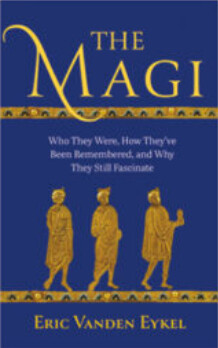
Fides et ratio always fides et ratio.
Like wings of a dove flying over our minds. No dove can fly on one wing ever . . .
Merry Christmas to dear QVBB and all our fellow faith and reason two-winged doves!
Always to balance the opposing tensions of rigor and imagination, I was organizing my Christmas vacation reading, with a tall stack to go through, but of course I needed still another book-friend! I found this review at Biblical Archeological Society.
Who were the Magi?
Their sole appearance comes in a dozen verses in the Gospel of Matthew (2:1–12). The Magi emerge first as figures “from the East” who, because of a star they see, travel to Jerusalem in search of a king. When Herod hears about their quest, he summons the Magi and asks them to report back on what they find. Warned by a dream, the Magi never pass along the intelligence Herod seeks about an apparent rival. (I love that part).
What could this story mean? Vanden Eykel’s theory is based on exploring the range of meanings attached to the Greek word magoi, and the use of the term in ancient narratives.[b] From these sources, Vanden Eykel identifies a theme of proximity to power. So too for Matthew’s Magi. Their presence in the home of the infant Jesus and their offering of gifts serve at once as proof of the power of the newborn and of the illegitimacy of Herod’s rule. . . .
The complete review here:
